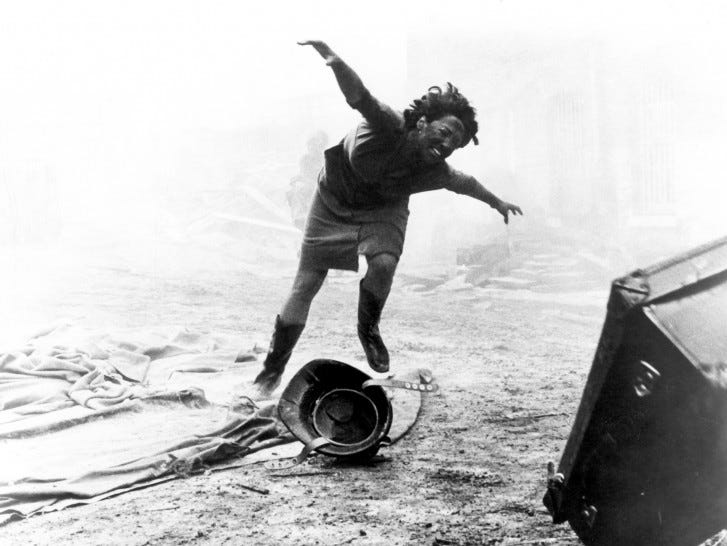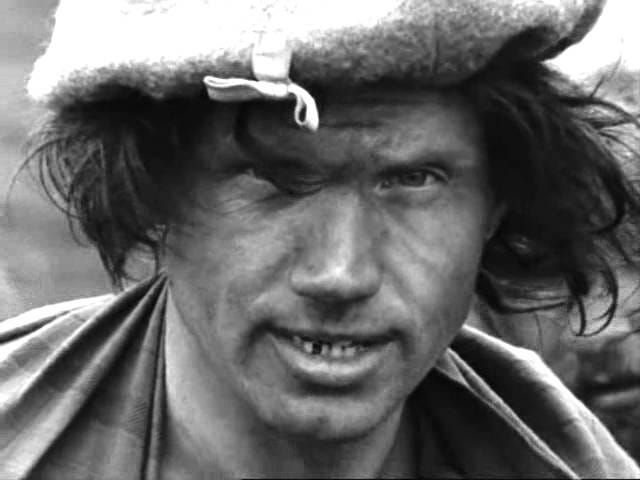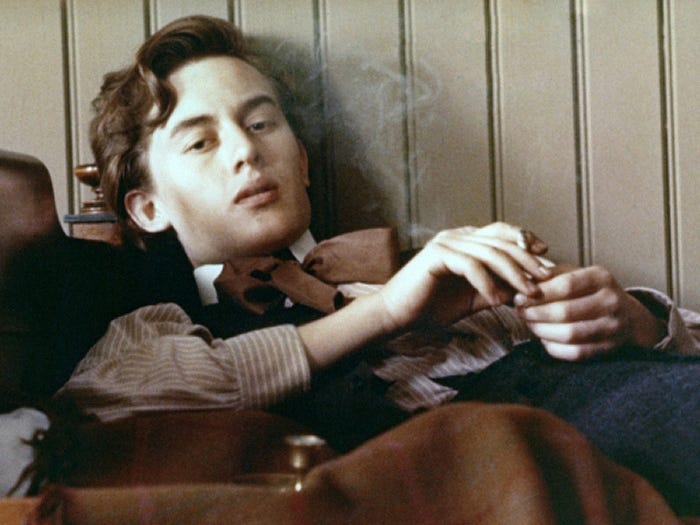Peter Watkins: An Appreciation
Britain doesn’t appreciate its boldest filmmakers. When Ken Loach won the Palme D’Or for his IRA period drama The Wind That Shakes The Barley, he was pilloried in the press as a terrorist sympathiser. When Alan Clarke and Bill Douglas died, both much too young, in the early 1990s, there was little celebration of their work. Terence Davies spent a decade in purgatory before his eventual comeback. But these directors have still received more domestic attention than Peter Watkins, who has died aged 90, and who spent most of the second half of his life in Canada, France and Lithuania.
Watkins, who like Clarke and Loach made his start at the BBC, was preoccupied with creating films that interrogated the form of television and filmmaking itself. Watkins believed in the steady ascent of what he called ‘the monoform’, a kind of media language that favoured a rapidity of editing, sound and image that overwhelmed the viewer, preventing them from fully interpreting the political ideology being transmitted. In the mid-1960s, he created two still-breathtaking television films, Culloden and The War Game, that blended documentary and drama in a virtually unprecedented manner, placing camera crews and interviewers in 18th century Scotland and in post-nuclear attack England. The incongruous presence of the filmmaking equipment – Bonnie Prince Charlie gives an interview on horseback, boom mic just over his head – creates a kind of verfremdungseffekt, the patrician BBC documentary form applied to moments of great historical and social rupture, the apparatus of the filmmaker always in view. The monoform, argued Watkins, thrives when the viewer is fully interpellated by a media montage that hides its ideology within its structure. In order to understand this, we need new forms that expose it.
The way I’ve described these films might make them sound a little dry, but that’s not the case at all. Both are hugely compelling, often exhilarating pieces of work, supremely anomalous within the landscape of 1960s British TV. Watkins’ camera bores into the faces of dissolute farmers and peasants, now conscripts on the battlefield of Culloden. ‘When did you last eat?” he asks one, met only with a hollow-eyed stare. In The War Game, Watkins camera remains shooting during a nuclear attack, lurching around living rooms and gardens as terrified inhabitants flee for shelter. I remember to this day the dispassionate manner in which the narrator explains, over footage of people writhing on the ground after the explosion, that the light of a nuclear blast is enough to melt the human eyeball.
Culloden
The BBC banned The War Game, as they did with Clarke’s Scum a decade later. Shortly afterwards, Watkins made Privilege, a film about a pop star (played by Manfred Mann frontman Paul Jones) whose worldwide fame is exploited by governments and the military to create a messianic media spectacle that manufactures consent. It’s extraordinary that this film was made nearly 60 years ago, when we only have to cast a glance at the rally-like stadium tours and rabid fandoms of pop music in 2025 to see how depressingly relevant it still is. Speaking of prescient, Watkins later film Punishment Park, about a military rendition camp for American radicals, could bar a couple of fashion trends have been made this year. The obverse of the relentlessly entertaining mass media, argues Watkins, is a constant interpellating surveillance, one which makes acolytes of most of us and incarcerates the dissenters. In 2025 we turn on the TV, a news report about the arrest of 500 peaceful protesters followed by the gaudy sideshow of Strictly; it’s Watkins’ world and we’re living it.
Not all of Watkins’ work was of this form. Later in his career, he released two biopics of Scandinavian artists, a 4-hour plus blend of filmed drama and documentary about August Strindberg, The Freethinker, and what many regard as his masterpiece, the epic Edvard Munch, made for Norwegian and Swedish television. In the latter, Watkins follows Munch as if making a film about him, narrating the artist’s life. Munch will occasionally, electrifyingly, look straight down the lens of the camera at the film crew chronicling his life. It’s an extraordinarily tender film, and – at risk of a reductive reading – it’s not hard to see an afterimage of Watkins in this portrait as an artist roundly attacked, boycotted and misunderstood, constantly revising and rethinking his methodology. Watkins subsequently returned to the nuclear question with The Journey (Reslan), a 14-hour documentary in 90-minute episodes made across twelve countries about the impact of nuclear and military technology on the lives of communities. Watkins offered the film to numerous TV broadcasters; they all refused.
Edvard Munch
Watkins’ final film, La Commune, a drama shot in the same documentary style as Culloden, restaged the history of the short-lived revolutionary French government. When the French TV station ARTE broadcast the film, they shunted it to a late-night slot where few would be watching. In the quarter-century after this, Watkins travelled in a number of countries, giving talks and screenings about what he perceived as an escalating media crisis and the supremacy of the monoform as a device for manufacturing complacency and consent. It’s extraordinary how on the money Watkins was about so many aspects of media culture – its increasing speed, its deliberate effacement of historical and political nuance in favour of mindless entertainment, its complicity with government policy. Relatively little of Watkins’ work, outside of a couple of films, is available as physical media in 2025. It’s time to acknowledge Watkins’ status as one of the most important postwar British directors, one whose vision of the world was unerringly, often shockingly, accurate. We need – and I would readily be involved with – physical releases of all his work, and a full season of his films at the BFI. The Latin and Greek roots of ‘Television’, the medium in which most of his work was conceived, literally translate as ‘to see far’, and Watkins saw very far indeed.





Few films have floored me the way The War Game did when I first saw it in a movie theater in the 70s.
I'm embarrassed to say I hadn't heard of him or his work until seeing notices of his death. I am eager to learn more.